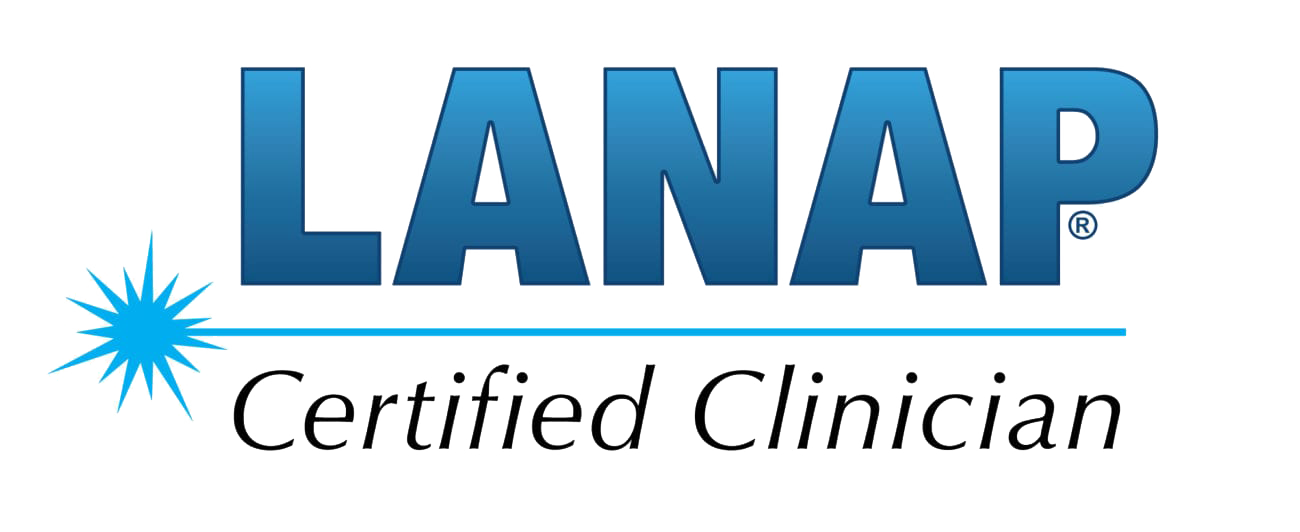Sleep Apnea and Snoring. Any Relation?
This is one of my favorite snoring videos from YouTube. Though a bit extreme, many of our patients have expressed their frustration with their bed partner’s snoring and apnea. This is an advertisement for a sleep apnea and snoring bed, but you get the message:
Snoring can be hazardous to your health!
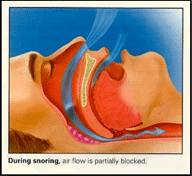 Snoring happens when your airway narrows. As the air that you breath flows through this narrow passage the soft tissue starts to vibrate, much like a thin membrane that produces the sound in a musical instrument. Only, snoring is usually not a pleasant to listen to.
Snoring happens when your airway narrows. As the air that you breath flows through this narrow passage the soft tissue starts to vibrate, much like a thin membrane that produces the sound in a musical instrument. Only, snoring is usually not a pleasant to listen to.
The decreased airway can be caused by many things including decreased muscle tone (age and physical condition), fatty deposits in the throat, and secretions or swelling or inflammation form colds or allergies.
If I Snore Does That Mean I Have Sleep Apnea?
No. Snoring does not mean you have sleep apnea. However there is a very strong correlation. A rule of thumb is if you snore on your back as well as sides then you probably have some form of obstructive sleep apnea and should consider being tested. You can click here for a Epworth sleep apnea self-test. What is interesting is if you have Sleep Apnea you don’t necessarily snore. So while snoring is an important piece of information when diagnosing sleep apnea, it is not the only thing sleep dentists and sleep physicians look at. The good news is many of the sleep apnea oral devices (made by sleep apnea dentists like Dr. Rader) will minimize or even stop your snoring.
What are Some of The Causes of Snoring?
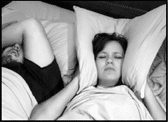 Most people claim that they don’t snore or if they do, they don’t think it is a problem for themselves or others. Whats interesting is when we ask their bed partner what they think about the snoring… see the video above for their response. The most common causes of snoring are breathing problems from colds and allergies and being over tired. However there are many other causes which make it difficult to accurately pinpoint what makes you snore.
Most people claim that they don’t snore or if they do, they don’t think it is a problem for themselves or others. Whats interesting is when we ask their bed partner what they think about the snoring… see the video above for their response. The most common causes of snoring are breathing problems from colds and allergies and being over tired. However there are many other causes which make it difficult to accurately pinpoint what makes you snore.
Here are just a few of the more common causes of snoring*:
- Breathing problems from allergies or colds
- A structural problem inside your nose.
- Tonsils and adenoids infection.
- A significant weight gain.
- Sleeping on your back.
- Alcohol and cigarette use.
- Certain medications (antihistamines, anti-depressants, etc.)
- Getting older
What Can You do About Snoring or Sleep Apnea?
So what can you do? And how can we help? For snoring you can get fitted with a sleep apnea/snore device such as the somnodent. This device will shift your jaw forward while you sleep thus minimizing or possibly stopping your snoring. The entire process only takes a couple of visits to our office for evaluation, fitting and adjustments.
For sleep apnea first thing to do is fill out a Epworth Sleep Apnea Screening Test (click here). If you score a 10 or higher on the Epworth Sleep Apnea Scale you should schedule an appointment to discuss having a sleep test (Polysomnogram or PSG). If you don’t score a 10 or higer on the sleep test you can still set up an appointment to discuss your sleep concerns with us.
Does Dental Insurance Cover Sleep Apnea Tests?
Unfortunately no, however your medical health insurance plan will most likely cover the cost and we can assist you with the billing. If you don’t have medical health insurance or a dental plan there are many sleep clinics and centers that offer low-cost sleep tests.
Once you have completed a sleep test (PSG) and one of our sleep physicians has confirmed that you have sleep apnea we can discuss your treatment options.
Treat Sleep Apnea & Snoring Without a CPAP Machine
Have Sleep Apnea or snoring questions? Schedule an appointment with Dr Rader Or you can always e-mail or call us: 925-932-1855
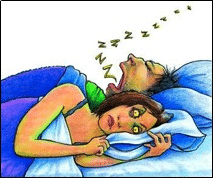 The definition of sleep apnea is a disorder in which you have one or more pauses in breathing or shallow breaths while you sleep. The breathing pauses can last for a few seconds up to a minute. A loud snort or choking sounds follows this long pause and then you start breathing again.
The definition of sleep apnea is a disorder in which you have one or more pauses in breathing or shallow breaths while you sleep. The breathing pauses can last for a few seconds up to a minute. A loud snort or choking sounds follows this long pause and then you start breathing again.
This is your mind waking you up just enough to reposition your jaw and throat in order for you to complete a breath. Thus the snorting and choking sounds. Below is a brief video that shows the breathing process and how obstructive sleep apnea interferes with a healthy breath.
Sleep Apnea Causes You to Stop Breathing
To see what severe sleep apnea looks like you can watch the next video. This is an actual sleep apnea patient. Count how long he stops breathing…
Sleep apnea is commonly misdiagnosed as depression or poor lifestyle choices since doctors cannot detect the disorder during routine visits. It is up to you to tell your physician or your dentist if you have any of the common apnea symptoms. Also, if you feel sleepy during the day, drink a number of cups of coffee to stay awake and alert during work hours or people tell you that you look tired you may want to take our Epworth sleep apnea self-test. This way you can better gauge your sleepiness and discuss it with Dr. Rader.
Many people don’t realize how much our sleep cycle can impact our overall health from dental health to feeling depressed and irritable. A good night of sleep can change the way you feel and look at the world.
What can you do about your sleep apnea?
So what can you do? And how can we help? First thing to do is fill out a Epworth Sleep Apnea Screening Test (click here). If you score a 10 or higher on the Epworth Sleep Apnea Scale you should schedule an appointment to discuss having a sleep test (Polysomnogram or PSG). Your health insurance plan will most likely cover the cost. If you don’t have health insurance there are many sleep clinics and centers that offer low-cost sleep tests.
Once you have completed a sleep test (PSG) and one of our sleep physicians has confirmed that you have sleep apnea we can discuss your treatment options.
Treat Sleep Apnea & Snoring Without a CPAP Machine
Have Sleep Apnea questions? Schedule an appointment with Dr. Rader
Or you can always e-mail or call us 925-932-1855
What Are The Signs And Symptoms* of Sleep Apnea?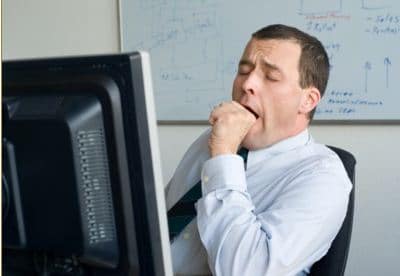
The most common symptom of obstructive sleep apnea (OSA) is excessive daytime sleepiness. We’re not talking about sleep deprived new parents, or being tired after a long trip, extreme exercise or staying up late drinking wine with your friends. We’re talking about feeling sleepy and feeling as if you may nod off in meetings, watching TV, driving etc.
If you feel sleepy during the day, drink a number of cups of coffee to stay awake and alert during work hours or people tell you that you look tired you may want to take our Epworth sleep apnea self-test. This way you can better gauge your sleepiness and discuss it with Dr. Rader.
Sleep Apnea can cause sleepiness, headaches, even heartburn
Many people don’t realize how much our sleep cycle can impact our overall health from dental health to feeling depressed and irritable. A good night of sleep can change the way you feel and look at the world. Here is a brief list of documented* symptoms of sleep apnea:
- Sleepiness and Sleep Apnea
- Irregular Breathing in Sleep
- Snoring / Sleep Apnea
- Sleep Apnea Headaches
- Teeth Grinding – Bruxism
- Gastric Reflux
- Night Time Urination
- Heart Attack and Stroke
- Sexual Dysfunction
- Cognitive Dysfunction
Other Conditions with sleep apnea symptoms
There are other conditions with symptoms that are similar to sleep apnea. They are:
- Under active thyroid (hypothyroidism)
- Narcolepsy – falling asleep suddenly
- Intense urge to move the legs – restless legs syndrome
What can you do about your sleep apnea?
So what can you do? And how can we help? First thing to do is fill out a Epworth Sleep Apnea Screening Test (click here). If you score a 10 or higher on the Epworth Sleep Apnea Scale you should schedule an appointment to discuss having a sleep test (Polysomnogram or PSG). Your health insurance plan will most likely cover the cost. If you don’t have health insurance there are many sleep clinics and centers that offer low-cost sleep tests.
Once you have completed a sleep test (PSG) and one of our sleep physicians has confirmed that you have sleep apnea we can discuss your treatment options.
Treat Sleep Apnea & Snoring Without# a CPAP Machine
Have Sleep Apnea questions? Schedule an appointment with Dr. Rader
Or you can always e-mail or call me: 650-583-5880
Do you have Sleep Apnea? Take Our Epworth Sleep Apnea Self Test*
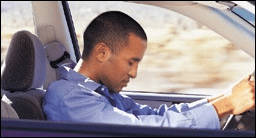 Below you will find a Epworth sleep apnea self-test. It is a simple, fast and accurate way to confirm if you should talk to us about your sleep habits, possible sleep apnea or overall health. The Epworth Sleep Apnea test was introduced by Dr. Murray Johns in 1991and has been validated and in use in obstructive sleep apnea ever since. It is a simple way to start understanding your daytime sleepiness.
Below you will find a Epworth sleep apnea self-test. It is a simple, fast and accurate way to confirm if you should talk to us about your sleep habits, possible sleep apnea or overall health. The Epworth Sleep Apnea test was introduced by Dr. Murray Johns in 1991and has been validated and in use in obstructive sleep apnea ever since. It is a simple way to start understanding your daytime sleepiness.
Question: How likely are you to doze off or fall asleep in the following situations (versus just feeling tired)?
Use this guide to interpret your results:
Less than 10 – is considered normal.
10 or higher – you probably have a sleep disorder (apnea) and should speak with Dr. Rader about it.
15 or higher – you have excessive daytime sleepiness and should speak to Dr.Rader about your sleepiness as soon as possible.
Treat Sleep Apnea & Snoring Without a CPAP Machine
Have Sleep Apnea questions? Schedule an appointment with Dr. Rader
Or you can always e-mail or call me: 925-932-1855
* This scale should not be used to make your own diagnosis. It is intended as a tool to help you identify your own level of daytime sleepiness, which can often be a symptom of various sleep disorders. If you suspect you have sleep apnea or another sleep disorder or just have questions about sleep apnea please speak with Dr. Rader and or your general physician.
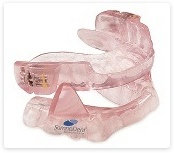 Sleep Apnea Dentist treating Sleep Apnea and Snoring without CPAP
Sleep Apnea Dentist treating Sleep Apnea and Snoring without CPAP
Sleep Apnea and Snore Appliances are a great alternative to CPAP especially for patients with mild to moderate sleep apnea. They can also be used to treat more severe sleep apnea in certain circumstances.
Do Sleep Apnea Mouthguards Really Work?
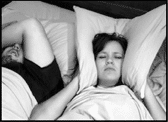 Yes. Sleep Apnea Oral Appliances, or snore guards, have been in use for over fifteen years. The sleep appliances we work with are FDA approved for obstructive sleep apnea and snoring. Dental sleep appliances have been shown to effectively treat mild, moderate and positionally based severe sleep apnea. We’ve provided hundreds of sleep appliances to our patients with fantastic success. Whether you want to minimize your bed partner’s snoring or treat sleep apnea, we can help.
Yes. Sleep Apnea Oral Appliances, or snore guards, have been in use for over fifteen years. The sleep appliances we work with are FDA approved for obstructive sleep apnea and snoring. Dental sleep appliances have been shown to effectively treat mild, moderate and positionally based severe sleep apnea. We’ve provided hundreds of sleep appliances to our patients with fantastic success. Whether you want to minimize your bed partner’s snoring or treat sleep apnea, we can help.
Covered by Most PPO Medical Plans and Medicare
We work with most medical PPO insurance plans, Medicare and some of the HMO plans in the Bay Area. If you have been diagnosed with Obstructive Sleep Apnea then your medical insurance plan should cover some or all of your appliance cost.
Since there are so many plans out there the best thing to do is call our office so we can look up your benefits for you.
Process to get a Sleep Apnea or Snore Device

The process to receive a sleep apnea mouthguard or snore guard is simple. The first step is to call us so we can find out more about you and your sleep apnea or snoring. Over the phone we will ask you a series of questions to make sure that you are a candidate for this treatment. We will discuss your health history, your sleep test results, the health of your teeth and gums, and your medical insurance coverage.
Once you decide that you would like to proceed we will start working with your doctor and your medical insurance company (if needed). We will attempt to authorize your treatment by working with your doctor and ours. Once everything is in place you can decide to start treatment.
It takes about three weeks for our lab to make the custom molded, form fitting sleep appliance. Then you will return to our office for a final fitting. From there we will have you wear it for a week or two to get used to it. Finally we start the titration or adjustment phase. This usually lasts about three to five weeks depending upon your level of snoring or sleep apnea. Once you return to your doctor he or she will request a final sleep test. This verifies that the sleep device is working for you and effectively treating your sleep apnea.
Who is East Bay Sleep Apnea Oral Appliance Center?
East Bay Sleep Apnea Oral Appliance Center is a group of doctors and dentists that are leaders in the area of alternative treatment for sleep apnea. We work with doctors and dentists who understand that CPAP is not the only treatment for sleep apnea. Oral Appliances or dental mouthguards can be the best solution for many patients that cannot or do not use their CPAP. We work with your current primary care doctor, cardiologist, or pulmonologist to provide you with the best sleep device for your apnea. If you don’t have a primary care doctor or a doctor that you’ve worked with we can help you find one. We also handle the medical insurance for you so you have one less thing to deal with.
Deciding on Oral Appliances
A quick appointment or phone call with us will allow you understand if you are a candidate for an oral appliance therapy for sleep apnea.
A consultation will allow us to review any results that you may have from an earlier sleep test, take a few necessary measurements, and then assess your teeth and gums to see if they are in good condition for the use of oral appliances. For more information about Dr. Rader’s training and experience, please click here.
East Bay Sleep Apnea Oral Appliance Center
Have Sleep Apnea or Snoring Questions? Schedule an appointment with Dr. Rader Or you can always e-mail or call us: 925-932-1855
Medical Insurance for Sleep Apnea Mouth Guards
Do We Handle Your Insurance? Yes.
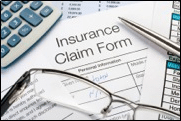 Yes, we will take care of your medical insurance billing and most of the time we can get you in-network benefits. We have a full-time medical biller on our team that will handle your coverage from start to finish. Pre-authorizations, pre-determinations, GAP exceptions, outstanding claims.
Yes, we will take care of your medical insurance billing and most of the time we can get you in-network benefits. We have a full-time medical biller on our team that will handle your coverage from start to finish. Pre-authorizations, pre-determinations, GAP exceptions, outstanding claims.
Our goal is to make it as easy and stress free for you to receive treatment. Ask some of our existing patients, we really do make it simple to receive sleep apnea treatment.
Insurance Process to get a Sleep Apnea Mouth Guard
 The insurance process for a sleep apnea mouthguard is usually fairly simple. Although, it can take up to six weeks to get approved. The first step is to call us so we can find out more about you and your sleep apnea. Over the phone we will make sure that you are a candidate for this treatment. We will discuss your health history, your sleep test results, the health of your teeth and gums, and your medical insurance coverage. Next we will need to collect the following information from you and your doctor(s):
The insurance process for a sleep apnea mouthguard is usually fairly simple. Although, it can take up to six weeks to get approved. The first step is to call us so we can find out more about you and your sleep apnea. Over the phone we will make sure that you are a candidate for this treatment. We will discuss your health history, your sleep test results, the health of your teeth and gums, and your medical insurance coverage. Next we will need to collect the following information from you and your doctor(s):
- Basic Patient information – See on-line forms here
- CPAP intolerance Affidavit – A statement as to why you are trying Oral Appliance Therapy
- Clinical Limitations – Understanding the limitations of oral appliance therapy
- A copy of your diagnostic (untreated) sleep study report
- Copy of the front and back of your medical insurance card
- Medical Necessity form signed by your doctor (referral form)
Once we have this information we will start working with your insurance plan. If needed, we will file pre-authorization and pre-determination paperwork for you and calculate any estimated copays. Once your insurance plan issues an authorization you are ready to start. From there we will submit and followup on your medical claims. Other than helping to gather the initial documents we keep it very simple for you. As aways, call us with any questions about your plan.
Do We Take Your Medical Insurance Plan?
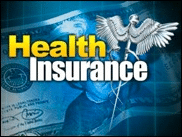 We work with almost every medical insurance plan in the Bay Area and many out-of-state plans. We have successfully billed all PPO plans that offer sleep apnea coverage such as Anthem Blue Cross, Aetna, Cigna, United Health Care, etc. We also work with many of the HMO plans in the Bay Area such as Kaiser, Sutter Health, Blue Cross / Blue Shield, Brown & Toland etc.
We work with almost every medical insurance plan in the Bay Area and many out-of-state plans. We have successfully billed all PPO plans that offer sleep apnea coverage such as Anthem Blue Cross, Aetna, Cigna, United Health Care, etc. We also work with many of the HMO plans in the Bay Area such as Kaiser, Sutter Health, Blue Cross / Blue Shield, Brown & Toland etc.
Once we have all your information we will call to verify that you have coverage. If you do not have coverage we offer a discount plan as well as payment plans. Since there are many different medical plans out there the best thing to do is call our office so we can look up your benefits for you. We do not charge our patients to pre-authorize their appliance.
How Much do Sleep Apnea Mouthguards Cost?
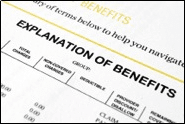 Most medical insurance plans will cover half to all of the cost. Unfortunately the medical insurance companies will not tell us or you what their “Allowable Fee” is. So there is no way to know exactly what they will pay. We keep a database of all plans that we have worked with.
Most medical insurance plans will cover half to all of the cost. Unfortunately the medical insurance companies will not tell us or you what their “Allowable Fee” is. So there is no way to know exactly what they will pay. We keep a database of all plans that we have worked with.
This way we can estimate your out of pocket expense. It’s not a perfect science, but we are usually very close. Please call us to discuss your plan. We can usually give you some specific information.
What if I’m in a Rush?
 No problem. Most medical plans based their coverage decision on the the date that you start treatment. If your plan requires pre-notification only or bases claims on medical necessity then you can start immediately.
No problem. Most medical plans based their coverage decision on the the date that you start treatment. If your plan requires pre-notification only or bases claims on medical necessity then you can start immediately.
In these situations we will collected our minimum fee from you on the day you start. Once your insurance clears we will refund the amount they paid. Most medical plans will reimburse within thirty to sixty days.
Deciding on Oral Appliances & Working with Your Medical Plan
A quick appointment or phone call will allow us to understand if you are a candidate for an oral appliance therapy and if your insurance provides benefits. Most patients prefer us to start the pre-authorization before they come in. This way they have an idea what their copays may be.
There is no commitment on your part until you decide to start. We don’t charge for the pre-authorization. Its done as a courtesy. We know how much of a hassle medical insurance can be. One of our goals is to make it easy for you to work with us. Please call us with any questions or feel free to e-mail us.
Have Medical Insurance Questions? Please call or e-mail us: (925) 932-1855

